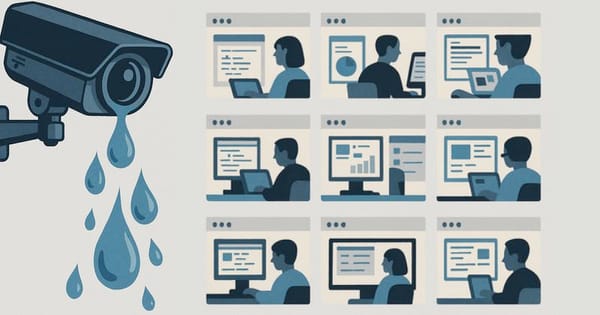Most US Hospital Websites Track and Share Visitor Data with Third Parties, Researchers Find

A staggering percentage of US hospitals track visitor data and transmit it to third parties, researchers at the University of Pennsylvania have discovered. After selecting a representative sample of 100 non-federal US hospitals, researchers found that 96 percent of analyzed websites employed tracking technologies and shared collected data with third parties.
Health privacy has long been a serious concern, understandably so, given the wealth of sensitive data embedded in medical records. If misused, such records could lead to various nefarious situations orchestrated by threat actors.
Tracking Data Collected from US Hospital Website Visitors
Although the information at stake is less sensitive than medical records, it could still reveal many details about visitors, especially if the receiving entities have the means to collate it effectively.
To make matters worse, some analyzed websites even lacked privacy policies. Reportedly, out of the 71 percent of the websites that included a privacy policy, 56% disclosed that third-party companies could receive user data.
Furthermore, 69 websites with privacy policies also specified what types of data they track and share with third parties, including IP addresses, web browser names and versions, visited pages, and the website from which the user arrived.
Several Companies, Data Brokers, and Other Third Parties Involved
Google was the most prevalent among the companies that collected tracking data from US hospital websites, appearing on nearly every page. Meta came next, with its trackers detected on just over half of the pages.
Adobe also made its presence known with its trackers on 20-30% of hospital websites. Microsoft, Amazon and other companies were also found to have trackers on these sites.
Hospital Privacy Policies Shouldn’t be Overlooked
“To effectively protect user privacy, hospitals should carefully weigh the costs and benefits of including third-party trackers on their websites and should eliminate unnecessary third-party tracking technologies,” reads the researchers’ paper. “They should also ensure that they have accessible and comprehensive privacy policies, which allow others to hold the hospitals accountable for their privacy practices and give users the resources they need to make informed decisions about website use.”
Digital privacy was sometimes dismissed or not taken seriously in the past, but nowadays, appreciation for its importance is growing. People are increasingly seeking methods to secure their digital assets and private information, recognizing the value of privacy in the digital realm.
Safekeeping Your Digital Privacy
Practicing cyber hygiene and being mindful of who you share your online data with can take you a long way regarding digital privacy. Unfortunately, large corporations such as Google and Meta hold a significant advantage over individuals aiming to protect their privacy, making it clear that mere caution in data sharing isn’t enough to fend off tracking.
Specialized tools like Bitdefender VPN can give you a strategic edge in these scenarios, helping you mask your online activities and enhancing your digital privacy and security with additional tools like ad blocking and tracking prevention.
tags
Author

Vlad's love for technology and writing created rich soil for his interest in cybersecurity to sprout into a full-on passion. Before becoming a Security Analyst, he covered tech and security topics.
View all postsRight now Top posts
How to Protect Your WhatsApp from Hackers and Scammers – 8 Key Settings and Best Practices
April 03, 2025
Outpacing Cyberthreats: Bitdefender Together with Scuderia Ferrari HP in 2025
March 12, 2025
Streamjacking Scams On YouTube Leverage CS2 Pro Player Championships to Defraud Gamers
February 20, 2025
How to Identify and Protect Yourself from Gaming Laptop Scams
February 11, 2025
FOLLOW US ON SOCIAL MEDIA
You might also like
Bookmarks








